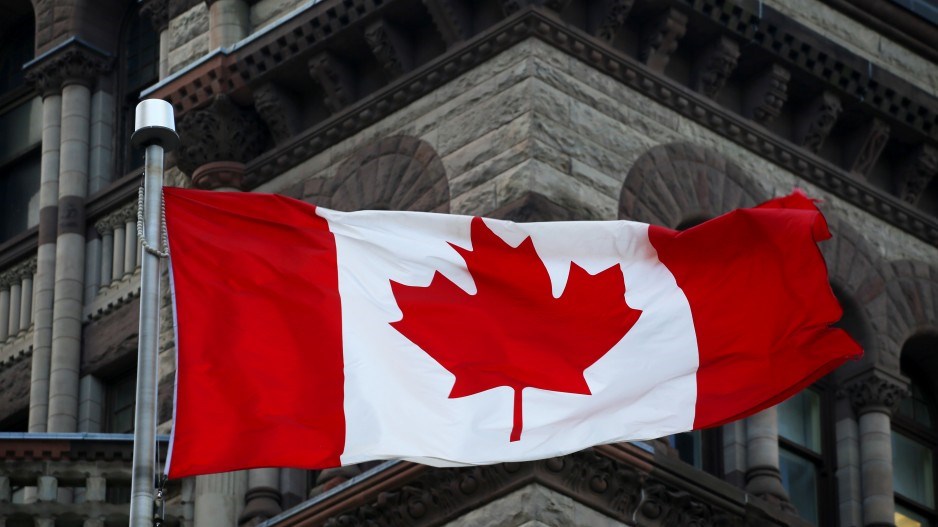Can’t say that I saw this coming.
I was subscribing to the conventional assumption that the special rapporteur appointed to determine if a public inquiry were necessary on foreign interference in our politics would agree it was the time and place to do so.
I assumed that David Johnston would identify the logical risks of public hearings – mainly in the efforts required to conceal the personnel and practices of our intelligence operations – but favour the overall public interest in dealing with the uncertainty about political interference coached by other governments. After all, there are many, many critical questions to answer.
Instead, in his preliminary report Tuesday, Johnston essentially had a Jack Nicholson movie moment, as in: “You can’t handle the truth.” Or more generously and precisely: we can’t bring forward the truth without damaging the delicate apparatus that gathers and analyzes intelligence on foreign and domestic activities.
As he put it: “The sensitivity of the intelligence and the damage that would be done by revealing it means that the ‘public inquiry’ would necessarily be held in camera. The Commissioner would be left in the same position as I, reviewing material in private and unable to provide any greater transparency than what I am able to provide to Canadians in this report.”
The critical question that guided Johnston’s review was answered: the prime minister is adequately briefed on intelligence findings, he doesn’t at all ignore them, and there is no “convincing evidence” that the government failed to act on foreign interference in the 2019 and 2021 elections. “I have not found examples of ministers, the prime minister or their offices knowingly ignoring intelligence, advice or recommendations on foreign interference or being driven by partisan considerations in dealing with these issues.” For the core purpose of Johnston’s mandate, he decided that’s sufficient.
He was clear that “attempts at foreign influence are ubiquitous” and have been for years with governments of all stripes, particularly efforts to influence from China. “It is an increasing threat to our democratic system and must be resisted as effectively as possible,” he wrote. While there is no evidence the 2019 or 2021 elections were affected, he says he “found serious shortcomings in the way intelligence is communicated from security agencies to the various government departments, processed at those departments to decide what should get briefed and recommended to the political levels, and communicated to the Prime Minister, responsible Ministers, and their respective Offices for decision-making and action. These serious gaps must be addressed and corrected.”
The former governor general and former principal of McGill University and president of University of Waterloo said we deserve “a further public process” he alone committed to conduct over the next five months for the duration of his mandate “on strengthening Canada’s capacity to detect, deter and counter foreign interference in our elections and the threat such interference represents to our democracy.”
So, we will get half a loaf or so at some point in a made-by-Johnston report.
To be fair, his 55-page preliminary document is as candid as any we’ve seen on the issue, and to be clear, it’s hardly reassuring that our country is so readily affected. Johnston had access to the prime minister, ministers, senior aides and bureaucrats, agency heads and a range of public servants and documentation.
His review was spurred by documents and sourced information leaked to media, principally by the Globe and Mail and Global Television. The initial response from Prime Minister Justin Trudeau was to dismiss, even contend with the truth of the reporting, and to express more worry about the leakers than with what was leaked. With one exception, Johnston didn’t dismiss the journalism, but he did claim he had the benefit of more context than the reporters. In general, that additional context led him to conclude “the specific instances raised are less concerning than some media reporting has suggested, and in some cases tell a different story from what has been reported to date.”
He also created a confidential appendix to his findings that will be reviewed by the prime minister, his cabinet and security-cleared opposition leaders, and wants Trudeau to refer his report to intelligence officials to determine if they agree with his findings.
But his decision not to recommend a robust, insightful exploration of the context of foreign involvement in our politics is a disappointment and, in many ways, his next five months is an opportunity for this government to escape an issue that hounds it.
We will get in Johnston’s next chapter a series of findings on governance, on information flow, and on systems that he believes are in need of reshaping. His process will be about process. We will get a result for a policy wonk, not a public worried.
It will take years to address what his research discovers and critiques, and meantime we will remain less than enlightened on anything but broad generalities on the conditions that seem to make foreign involvement relatively easy.
We need to know who knew what, when, and what was done about it. We need to know who in Canada assists who abroad in this activity. We even need to know what was it about this government whose candidates China saw fit to support. In our market, with a large Chinese diaspora and contingent of political officials, this is even more significant.
Johnston’s work ahead won’t touch these issues, the questions will remain unanswered, and we will continue to be told it is best we live in the dark.
Kirk LaPointe is publisher and executive editor of Business in Vancouver and vice-president, editorial, of Glacier Media



